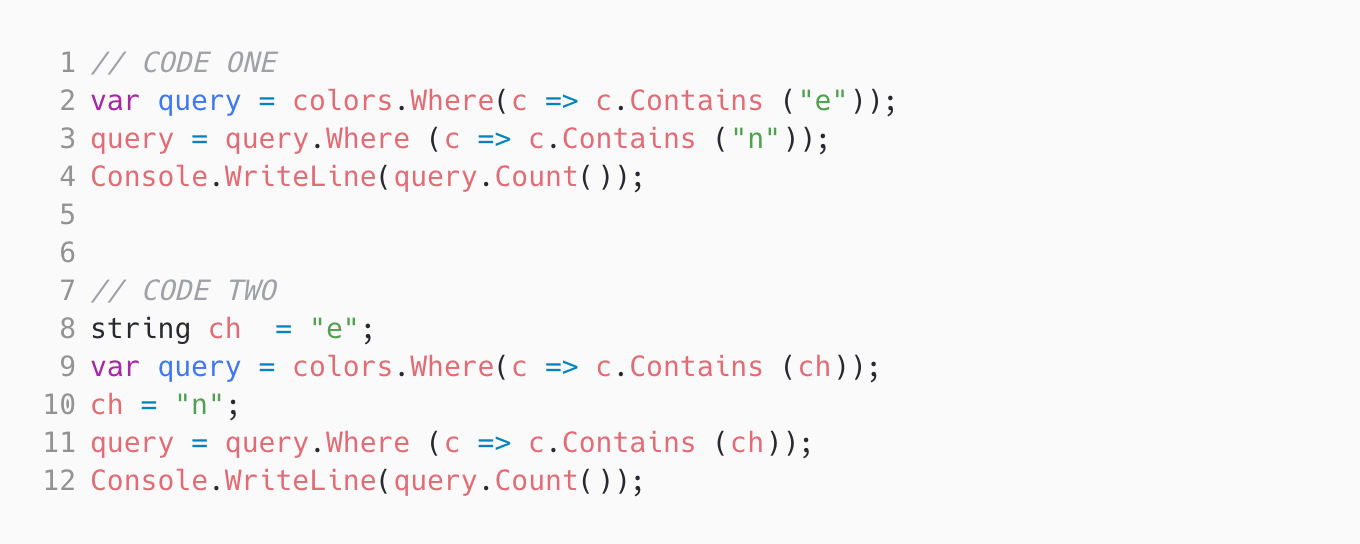Query Expressions: Query expressions in LINQ provide a convenient way to write queries by using a SQL-like syntax. They allow developers to retrieve and manipulate data from various data sources effortlessly.
Lambda Expressions: Lambda expressions are concise and powerful ways to write inline functions. These allow developers to create and use small, anonymous functions that can be used in LINQ queries for filtering, sorting, or transforming data more efficiently.
Standard Query Operators: Standard Query Operators are predefined methods that provide a set of commonly used query operations in LINQ. These operators facilitate tasks such as filtering, projecting, sorting, aggregating, and joining data in a more structured and readable manner.
Deferred Execution: Deferred execution is a feature of LINQ that postpones the actual execution of a query until the data is actually requested. This allows optimization and laziness in the execution of the query, resulting in better performance and memory management.
Join Operations: Join operations in LINQ allow developers to combine data from multiple sources based on specified conditions. This skill is important to measure as it enables the assessment of a candidate's ability to write complex queries involving multiple tables or data sources.
Aggregation: Aggregation in LINQ involves calculating a single value from a collection of values. This skill is important to measure as it demonstrates a candidate's understanding of performing calculations and summarizing data efficiently.
Grouping: Grouping in LINQ allows developers to categorize data based on common attributes or values. This skill is important to measure as it reflects a candidate's ability to organize and analyze data in a structured and meaningful way.
Sorting: Sorting in LINQ involves arranging data in a specific order based on one or more criteria. This skill is important to measure as it indicates a candidate's ability to retrieve and present data in a desired sequence, which is often crucial in data analysis and reporting.
Filtering: Filtering in LINQ refers to the process of selecting specific elements from a collection based on specified conditions. This skill is important to measure as it demonstrates a candidate's ability to extract and retrieve relevant data, which is fundamental in data manipulation and analysis.
Data Transformation: Data transformation in LINQ involves converting data from one form to another, often by applying various operations or functions. This skill is important to measure as it reflects a candidate's ability to manipulate and modify data in different ways to meet specific requirements and goals.























































